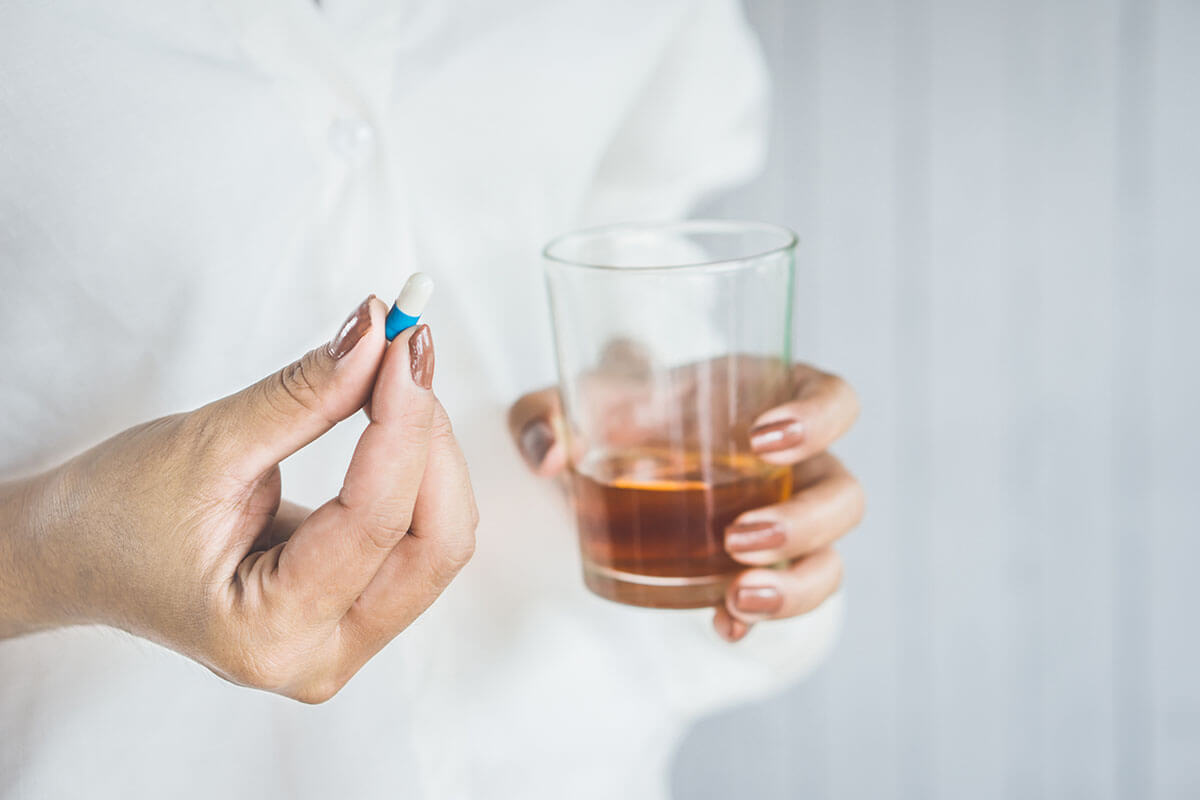
Mixing Ativan (lorazepam) with alcohol is extremely dangerous and can have severe short- and long-term consequences. Both substances affect the central nervous system (CNS) and can lead to significant health risks when used together. Unfortunately, many people underestimate the dangers of combining these substances, assuming the effects are minor or manageable.
At Soledad House, we believe in empowering individuals with the knowledge they need to make informed decisions about their health and well-being. If you or a loved one is struggling with substance use, it’s important to understand why mixing Ativan and alcohol can be so hazardous.
What Is Ativan?
Ativan (lorazepam) is a prescription benzodiazepine commonly used to treat anxiety disorders, insomnia, and seizures. It works by enhancing the effects of gamma-aminobutyric acid (GABA), a neurotransmitter that slows brain activity. This results in a calming effect, making Ativan effective for reducing anxiety, relaxing muscles, and preventing seizures.
However, because Ativan is a powerful sedative, it can also cause drowsiness, dizziness, confusion, and memory problems, even when taken as prescribed. Long-term use can lead to tolerance, dependence, and addiction, especially if misused or combined with other substances like alcohol.
How Alcohol Affects the Body
Alcohol is a depressant that also affects the central nervous system. While many people drink alcohol for its relaxing or euphoric effects, it impairs judgment, coordination, and reaction times. In higher doses, alcohol can cause drowsiness, blackouts, slowed breathing, and even unconsciousness.
Because alcohol and Ativan both depress the nervous system, using them together significantly increases the risk of dangerous side effects. Even moderate drinking while taking Ativan can lead to unpredictable and harmful reactions.
What Happens When You Mix Ativan and Alcohol?
Combining Ativan and alcohol can amplify their effects, leading to heightened sedation, confusion, and loss of control over basic functions. Some of the most common and dangerous side effects include:
- Severe Drowsiness and Fatigue – You may feel excessively sleepy, sluggish, or unable to stay awake.
- Dizziness and Impaired Coordination – Your ability to walk, balance, and perform everyday activities can be dangerously affected, increasing the risk of falls or accidents.
- Memory Loss and Blackouts – Mixing these substances can lead to complete gaps in memory, where you may not remember conversations, actions, or decisions.
- Slowed or Stopped Breathing (Respiratory Depression) – In severe cases, Ativan and alcohol together can suppress breathing to dangerous levels, which may lead to coma or death.
- Dangerous Mood and Behavior Changes – Combining these depressants can cause severe mood swings, aggression, impulsivity, or even suicidal thoughts.
Because of these risks, doctors strongly advise against drinking alcohol while taking Ativan. The effects are unpredictable and vary based on dosage, body weight, metabolism, and overall health.
Long-Term Risks of Using Ativan and Alcohol Together
While the short-term effects of mixing Ativan and alcohol are already serious, long-term use can have even greater consequences, including:
1. Increased Tolerance and Dependence
Your body adapts to Ativan and alcohol over time, requiring larger amounts to feel the same effects. This increases the likelihood of addiction and overdose.
2. Addiction and Withdrawal Symptoms
Both Ativan and alcohol are highly addictive. Using them together regularly can make quitting extremely difficult. Withdrawal symptoms from either substance can include anxiety, insomnia, tremors, seizures, and life-threatening complications.
3. Liver and Organ Damage
Alcohol is already known to harm the liver, and Ativan can add to the strain. Over time, this can lead to liver disease, kidney damage, and other serious health conditions.
4. Mental Health Decline
Long-term use of Ativan and alcohol can contribute to depression, anxiety, and cognitive decline. These substances may temporarily numb emotions, but they ultimately make mental health issues worse over time.
5. Increased Risk of Overdose and Death
The biggest danger of mixing Ativan and alcohol is the risk of overdose. Because both substances slow brain function, they can suppress breathing and heart rate to fatal levels. This is a common cause of overdose deaths, particularly when taken in large amounts or combined with other drugs.
How to Stay Safe and Avoid the Dangers of Ativan and Alcohol
If you’ve been prescribed Ativan, the safest choice is to completely avoid alcohol while taking the medication. Even occasional drinking can have dangerous consequences. Here’s how you can protect yourself or a loved one:
1. Follow Your Doctor’s Instructions Carefully
Never take more Ativan than prescribed, and always discuss alcohol use with your doctor. They can provide guidance on safe medication practices.
2. Be Honest About Your Alcohol Use
If you drink regularly, it’s important to let your healthcare provider know before starting Ativan. They can help you explore safer alternatives for managing anxiety or sleep issues.
3. Seek Help If You Struggle with Substance Use
If you’re finding it difficult to stop drinking or using Ativan, professional help is available. Addiction is a medical condition that requires support, treatment, and compassion.
4. Learn the Warning Signs of Overdose
If you or someone you know experiences extreme drowsiness, confusion, slowed breathing, or loss of consciousness after mixing Ativan and alcohol, seek emergency medical help immediately. Acting fast can save a life.
Get Support at Soledad House
At Soledad House, we specialize in helping women overcome addiction in a compassionate and supportive environment. If you or a loved one is struggling with Ativan and alcohol use, our dedicated team is here to guide you toward recovery.
We offer:
- Personalized Treatment Plans – Tailored to your unique needs and recovery goals.
- Therapy and Counseling – Addressing both substance use and underlying mental health challenges.
- Safe Detox Programs – Helping you withdraw from substances safely under medical supervision.
- A Supportive Community – A network of women dedicated to healing and growth.
You don’t have to go through this alone. If you’re ready to take the first step toward a healthier, substance-free life, contact Soledad House today. We’re here to help you reclaim control and build a brighter future.

